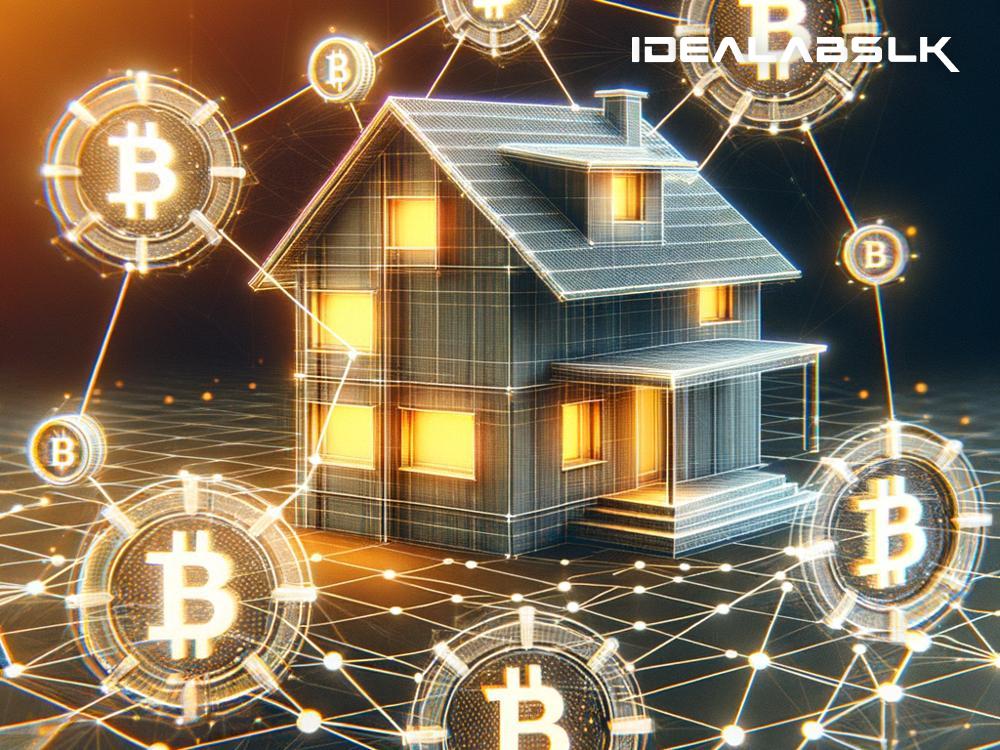Blockchain in Real Estate: How Blockchain is Enabling Trustless Transactions
In today's fast-paced world, the real estate industry, which was once considered conservative and resistant to change, is now on the cusp of a technological revolution. This transformation is powered by blockchain technology, known to many through cryptocurrencies like Bitcoin. However, blockchain's potential extends far beyond just cryptocurrencies. It's paving the way for trustless transactions in real estate, promising to make buying and selling properties easier, more secure, and more efficient than ever before. Let's dive into how blockchain is reshaping the real estate landscape.
Understanding Blockchain
Before we delve into its impact on real estate, let's simplify blockchain technology. Imagine a ledger or a record book that is shared among a network of computers. Every transaction is recorded in this ledger, verified by multiple participants in the network, and once added, cannot be altered or deleted. This creates an immutable record of transactions, ensuring transparency and security. In essence, blockchain is a system of recording information in a way that makes it difficult or impossible to change, hack, or cheat the system.
The Traditional Real Estate Transaction Process
Traditionally, buying or selling a property involves multiple parties and steps – real estate agents, lawyers, banks, and more. It requires a significant amount of paperwork, verification, and time. The process can be daunting, expensive, and sometimes, not entirely transparent. This is precisely where blockchain steps in, offering a new way to conduct transactions.
How Blockchain is Changing the Game
1. Trustless Transactions
The term "trustless" might sound negative at first, but in the blockchain world, it's actually a positive aspect. It means you don't need to trust a third party or intermediary to ensure that your transaction is secure and valid. The blockchain does this for you. In real estate, this means buyers and sellers can interact directly, reducing the need for intermediaries, which can lower transaction costs and speed up the process.
2. Transparency and Security
Every transaction on the blockchain is recorded transparently and securely. This means that once a property sale is recorded on the blockchain, it's there for good. Anyone can verify the ownership and transaction history of a property, reducing the chances of fraud. This level of transparency and security is particularly appealing in the real estate sector, where the stakes are high.
3. Tokenization of Assets
Blockchain enables the tokenization of real estate assets. This means a property can be divided into tokens that represent shares of the property. These tokens can then be bought and sold on the blockchain. This could potentially open up the real estate market to more investors, as it lowers the entry barrier and allows for fractional ownership. Imagine being able to own a piece of a property in a prime location for just a small investment!
4. Streamlining Processes
From property searches to finalizing the transaction, blockchain can streamline the entire real estate buying and selling process. Smart contracts, which are self-executing contracts with the terms directly written into code, can automate many of the steps involved. This includes verifying identities, conducting background checks, and transferring property titles. Such automation not only speeds up transactions but also reduces human error.
Challenges and the Road Ahead
Despite its potential, integrating blockchain into the real estate sector is not without challenges. Regulatory hurdles, the need for widespread adoption, and concerns about technology's complexity are significant barriers. However, several startups and companies are already experimenting with blockchain in real estate, and with ongoing developments, these challenges are likely to be addressed over time.
Conclusion
Blockchain technology is poised to revolutionize the real estate industry by enabling trustless transactions, enhancing transparency and security, lowering costs, and making the property market accessible to more people. While there are hurdles to overcome, the potential benefits are too significant to ignore. As we look towards the future, it's clear that blockchain could soon transform the way we buy and sell properties, making it a smoother, faster, and more secure process for everyone involved. The era of blockchain in real estate is just beginning, and it's an exciting time to watch this space evolve.

